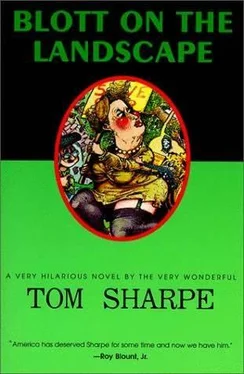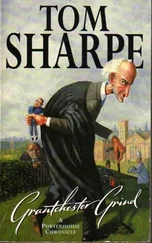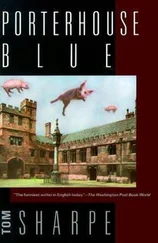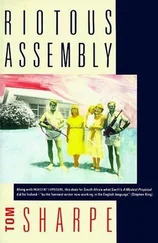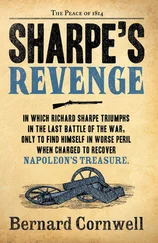Tom Sharpe - Blott on the Landscape
Здесь есть возможность читать онлайн «Tom Sharpe - Blott on the Landscape» весь текст электронной книги совершенно бесплатно (целиком полную версию без сокращений). В некоторых случаях можно слушать аудио, скачать через торрент в формате fb2 и присутствует краткое содержание. Жанр: Современная проза, на английском языке. Описание произведения, (предисловие) а так же отзывы посетителей доступны на портале библиотеки ЛибКат.
- Название:Blott on the Landscape
- Автор:
- Жанр:
- Год:неизвестен
- ISBN:нет данных
- Рейтинг книги:5 / 5. Голосов: 1
-
Избранное:Добавить в избранное
- Отзывы:
-
Ваша оценка:
- 100
- 1
- 2
- 3
- 4
- 5
Blott on the Landscape: краткое содержание, описание и аннотация
Предлагаем к чтению аннотацию, описание, краткое содержание или предисловие (зависит от того, что написал сам автор книги «Blott on the Landscape»). Если вы не нашли необходимую информацию о книге — напишите в комментариях, мы постараемся отыскать её.
Blott on the Landscape — читать онлайн бесплатно полную книгу (весь текст) целиком
Ниже представлен текст книги, разбитый по страницам. Система сохранения места последней прочитанной страницы, позволяет с удобством читать онлайн бесплатно книгу «Blott on the Landscape», без необходимости каждый раз заново искать на чём Вы остановились. Поставьте закладку, и сможете в любой момент перейти на страницу, на которой закончили чтение.
Интервал:
Закладка:
Behind her the crowd turned its attention to Lord Leakham’s Rolls-Royce. Apples and tomatoes rained on the Old Courthouse. To roars of approval from the onlookers Blott attempted single-handed to turn the car over and was immediately joined by several dozen farmers. When Lord Leakham, escorted by a posse of policemen, emerged from the Courthouse it was to find his Rolls on its side. It took several baton charges to clear a way through the crowd and all the time the cameras recorded faithfully the public response to the proposed motorway through the Cleene Gorge. In Ferret Lane shop windows were broken. Outside the Goat and Goblet Lord Leakham was drenched with a pail of cold water. In the Abbey Close he was concussed by a portion of broken tombstone, and when he finally reached the Four Feathers the Fire Brigade had to be called to use their hoses to disperse the crowd that besieged the hotel. By that time the Rolls-Royce was on fire and groups of drunken youths roamed the streets demonstrating their loyalty to the Handyman family by smashing street lamps.
In her cell in the police station Lady Maud removed her dentures from her pocket and smiled at the sounds of revelry. If the price of justice was eternal publicity she was assured of a fair trial. She had done what she had set out to do.
Chapter 6
In London the Cabinet, meeting to cope with yet another turn for the worse in the balance of payments crisis, greeted the news of the disturbances in Worford less enthusiastically. The evening papers had headlined the arrest of an MP’s wife but it was left to the television news to convey to millions of homes the impression that Lady Maud was the victim of quite outrageous police brutality.
“Oh my God,” said the Prime Minister as he watched her on the screen. “What the hell do they think they’ve been doing?”
“It rather looks as if she’s lost a couple of teeth,” said the Secretary of State for Foreign Affairs. “Is that a teat hanging out there?”
Lady Maud smiled bravely and collapsed on to the pavement.
“I shall institute a full investigation at once,” said the Home Secretary.
“Who the hell appointed Leakham in the first place?” snarled the Prime Minister.
“It seemed a suitably impartial appointment at the time,” murmured the Minister of the Environment. “As I remember it was thought that an Enquiry would satisfy local opinion.”
“Satisfy…?” began the Prime Minister, only to be interrupted by a phone call from the Lord Chancellor who complained that the rule of law was breaking down and even after it was explained to him that Lord Leakham was a retired judge muttered mysteriously that the law was indivisible.
The Prime Minister put the phone down and turned on the Minister of the Environment. “This is your pigeon. You got us into this mess. You get us out. Anyone would think we had an absolute majority.”
“I’ll see what I can do,” said the Minister.
“You’ll do better than that,” said the Prime Minister grimly. On the screen Lord Leakham’s Rolls-Royce was burning brilliantly.
The Minister of the Environment hurried from the room and phoned the home number of his Under-Secretary. “I want a troubleshooter sent to Worford to sort this mess out,” he said.
“A troubleshooter?” Mr Rees, who was in bed with flu and whose temperature was 102, was in no fit state to deal with Ministerial requests for troubleshooters.
“Someone with a flair for public relations.”
“Public relations?” said Mr Rees, searching his mind for a subordinate who knew anything about public relations. “Can I let you know by Wednesday?”
“No,” said the Minister, “I need to be able to tell the Prime Minister that we have the situation in hand. I want someone despatched tomorrow morning by the latest. We need to have someone up there who will take charge of negotiations. I look to you to pick someone with initiative. None of your run-of-the-mill old fogies. Someone different.”
Mr Rees put the phone down with a sigh. “Someone different indeed,” he muttered. “Troubleshooters.” He felt aggrieved. He disliked being phoned at home, he disliked being ordered to make rapid decisions, he disliked the Minister and he particularly disliked the suggestion that his department consisted of run-of-the-mill old fogies.
He took another spoonful of cough mixture and considered a suitable candidate to send to Worford. Harrison was on leave. Beard was engaged on the Tanker Terminal at Scunthorpe. Then there was Dundridge. Dundridge was clearly unsuitable. But the Minister had specified someone different and Dundridge was decidedly different. There was no denying that. Mr Rees lay back in his bed, his head fuzzy with flu and recalled some of Dundridge’s initiatives. There had been the one-way system for Central London, of an inflexibility that would have made it impossible to drive from Hyde Park Corner to Piccadilly except by way of Tower Bridge and Fleet Street. Then there was his pilot project for installing solid-state traffic lights in Clapham, a scheme so aptly named that it had isolated that suburb from the rest of London for almost a week. In practical terms Dundridge was clearly a disaster. On the other hand he did have a flair for public relations. His schemes sounded good and year by year Dundridge had been promoted, carried upward by an ineluctable wave of inefficiency and the need to save the public the practical consequences of his latest idea until he had reached that rarefied zone of administration where, thanks to the inertia of his subordinates, his projects could never be implemented. Mr Rees, semi-delirious and drugged with cough medicine, decided on Dundridge. He went downstairs and dictated his instructions by phone to the tape recorder on his secretary’s desk at the Ministry. Then he poured himself a large whisky and drank to the thought of Dundridge in Worford. “Trouble-shooter,” he said and went back to bed.
Dundridge travelled to work by tube. It was in his opinion the rational way to travel and one that avoided the harsh confusion of reality. Seated in the train he was able to concentrate on essentials and to find some sense of order in the world above by studying the diagram of the Northern Line on the wall opposite. Far above him there was chaos. Streets, houses, shops, blocks of flats, bridges, cars, people, a welter of disparate and perverse phenomena which defied easy categorization. By looking at the diagram he could forget that confusion. Chalk Farm followed Belsize Park and was itself followed by Camden Town in a perfectly logical sequence so that he knew exactly where he was and where he was going. Then again, the diagram showed all the stations as equidistant from their neighbours and while he knew that in fact they weren’t, the schematic arrangement suggested that they should be. If Dundridge had had anything to do with it they would have been. His life had been spent in pursuit of order, an abstract order that would have supplanted the perplexities of experience. As far as he was concerned variety was not the spice of life but gave it a very bitter flavour. In Dundridge’s philosophy everything conformed to a norm. On one side there was chance, nature red in tooth and claw and everything haphazard; on the other science, logic and numeration.
Dundridge particularly favoured numeration and his flat in Hendon conformed to his ideal. Everything he possessed was numbered and marked on a chart above his bed. His socks for instance were 01/7, the 01 referring to Dundridge himself and the 7 to the socks and were to be found in the top drawer left (1) of his chest of drawers 23 against the wall 4 of his bedroom 3. By referring to the chart and looking for 01/7/1/23/4/3 he could locate them almost immediately. Outside his flat things were less amenable and his attempts to introduce a similar system into his office at the Ministry had met with considerable – grade 10 on the Dundridge scale – resistance and contributed to his frequent transfers from one department to another.
Читать дальшеИнтервал:
Закладка:
Похожие книги на «Blott on the Landscape»
Представляем Вашему вниманию похожие книги на «Blott on the Landscape» списком для выбора. Мы отобрали схожую по названию и смыслу литературу в надежде предоставить читателям больше вариантов отыскать новые, интересные, ещё непрочитанные произведения.
Обсуждение, отзывы о книге «Blott on the Landscape» и просто собственные мнения читателей. Оставьте ваши комментарии, напишите, что Вы думаете о произведении, его смысле или главных героях. Укажите что конкретно понравилось, а что нет, и почему Вы так считаете.
